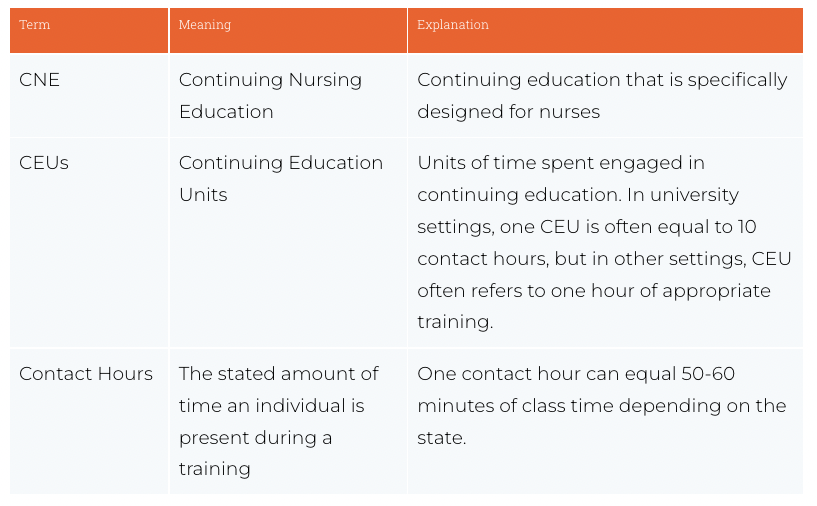Healthcare compliance training touches every part of post-acute care organizations. As regulations tighten and patient privacy standards […]
Understanding the ins and outs of continuing education for nurses is critical for home health agencies. Considering the central role nurses play in home health agencies, it’s important to support them in maintaining compliance with their licensure. Providing quality training and diverse types of continuing education activities for nurses on your staff can improve the care your clients receive and be a powerful recruitment and retention tool in a competitive market.
Below, we break down what home health agencies need to know about continuing education for nurses generally and share types of continuing education activities that are most effective for nurses.
Continuing education for nurses overview:
Continuing education helps nurses expand their knowledge base and stay current on best practice procedures to provide the best care to the patients and develop their careers in a dynamic field. It is also required for nurses in most states to keep their licenses in good standing. Visit your state’s board of nursing webpage to review nursing CE requirements in your state.
Nursing continuing education typically centers around a similar range of topics to formal nursing education, including care techniques, medicine, wellness, leadership, and legal and ethical considerations for nurses. It is also important for home health agencies to be aware of specific language used around continuing education to best support their nursing staff:
Read more on terminology from nursing.org.
Continuing education requirements for nurses vary on a state-by-state basis both in terms of the CEU’s required and content-specific requirements. For example, Delaware simply requires nurses to complete 30 accredited contact hours every two years. This contrasts with states like Florida where nurses are required to earn 24 contact hours every two years that must include content specific training on medical errors, state laws and rules, HIV/AIDS and domestic violence.
See here for a complete list of state-specific CEU requirements for your nursing staff.
Types of continuing education activities for nurses
Below are effective formats for continuing education for your nursing staff. Remember to be sure the continuing education opportunities you provide to your staff have been approved. Most states accept training accredited by the American Nurses Credentialing Center (ANCC). This ensures both the reliability of information presented and that your nursing staff can count the CEs toward their licensure renewal.
Conferences
This type of continuing education for nurses provides multiple professional development benefits, including accredited CEs for attendance. Nurses who are able to access continuing education via conferences also have the opportunity to network and hear from top experts from a variety of fields in specialized care who gather for the event.
Conferences present unique learning opportunities for your nursing team. However, staffing requirements and pandemic considerations may make it impossible for home health agencies to send their entire team to a conference. Consider offering attendance as an incentive for top performers in your agency, or offer access to multiple conferences for your staff to spread out attendance over the year.

The Mayo Clinic maintains a list of nursing conferences here.
Live classes
In-person training is a valuable type of continuing education for nurses in home health agencies. Not only is in-person education an effective format for complex subject matter, but live classes provide an opportunity for your staff to connect and form bonds.
Consider connecting your nursing staff with local healthcare organizations which often offer free seminars or grand rounds which can provide nurses with CEs.
Online classes
Today, online nursing CEs are the most popular, according to Nurse Central. Online courses and trainings offer your nursing staff opportunities to move through content at their own pace and support different styles of learning. Not everyone is an auditory learner–offering your nursing staff access to online courses also offers a useful format to accommodate differences in learning styles. Furthermore, the COVID-19 pandemic has presented the need to observe appropriate and safe social distance. Online classes can be taken at home further reducing risks introduced with in-person gatherings.
Online programs like CareAcademy’s ANCC-approved continuing nursing education content offer nurses the opportunity to pick from a vast library of topics that satisfy state requirements.
Conclusion
Continuing education is a critical piece of ensuring your home health agency clients receive the highest quality care. By investing in your nursing staff’s education and professional development, home health agency operators can ensure their team feels valued and improve outcomes for clients.
Learn more about CareAcademy’s online ANCC-approved continuing education content for nurses.





